Willi Narloch
Nacimiento : 1910-07-18, Berlin, Germany
Muerte : 1973-04-18

Willi Graf

Edmund Kühn
a tv-movie by Frank Beyer

Oskar Linke

Erzähler
A funny old comedy about ten year old Micha who decide that as a responsible brother he must prevent his older sister - seventeen year old Susi - from any romantic relations.

Grabow

The adventures of three friends from East Germany on the Black Sea.

Peter Ruckers
The two-piece black and white movie "Brennende Ruhr" portrays the events during the Kapp-Putsch 1920 in a small german town in the Ruhr district. The main protagonist is Ernst Sukrow, a student who sympathises first with the bourgeois forces but finally decided to join the communists in their fight.
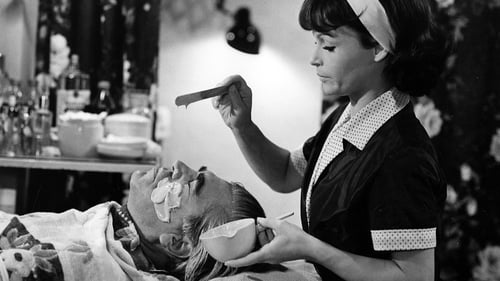
Koffer-Ede
Ewald Honig can't break his bad habit. Hardly has he crossed over into the GDR when the strapping, well-built man in his late fifties once again starts courting ladies with fraudulent intentions. His daughter Ina, burdened with the same genes, specializes in married men in their prime. Two criminologists are on the Honigs' trail, but they soon have enough to handle just dealing with each other. Meanwhile, Honig and his daughter have left their wayward path of their own accord.

Narrator (voice)
Impressions of a playground in Berlin. It is also the playing field of the elderly chess and card players - counterpoint to the argument of isolation and emptiness in old age.
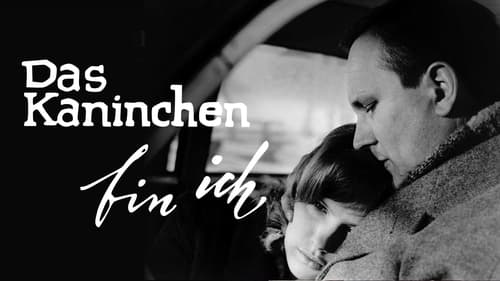
Oskar
Maria es joven, guapa, inteligente y quiere ir a la universidad para progresar en la vida. Todo se viene abajo cuando su hermano es condenado por subversivo. Inicia entonces una relación amorosa con el juez del caso, un hombre casado y de ideas conservadoras... (FILMAFFINITY)

Meister Bromme

Engineer Strebel′s apprentices think of nothing else but music and dancing, although they should really concentrate on their marks. Consequently, Strebel is anything but delighted with his pupil. To top it all, a TV show becomes interested in a performance by Strebel′s apprentices. To calm down their teacher, Jutta Fröhlich, who has already cast an eye on Strebel, makes him an offer: When they better their marks, Strebel would permit them to make a performance on television.


In the late 1950s, the collectivization of agriculture is in full swing in the East German village of Willshagen on the German-German border. Those in charge have to face many obstacles, especially from a large-scale farmer who is unwilling to join the co-op. All of a sudden, mysterious men in a fancy car appear in the village and show an interest in the rundown manor house. Gossip spreads quickly, and some villagers think there will be a re-parceling of properties and a land swap with West Germany. They assume everything will go back to how it used to be and even expect the count to return to his manor. In preparation, the situation in the village escalates at a fevered pitch.
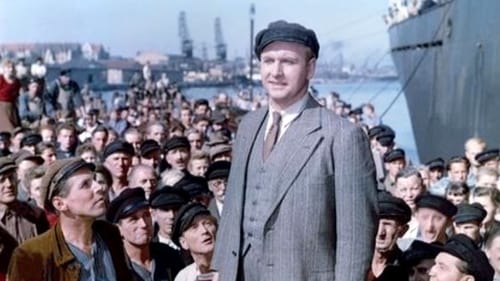
ZK-Vertreter
This film is the first of a two-part historical and biographical portrait of the communist politician and anti-fascist Ernst Thälmann. In early November 1918, Ernst Thälmann is an unwilling soldier serving on the western front. As the revolutionary movement at home is threatened by the betrayal of the Social Democrats and fissures in the working class, Thälmann calls on his fellow soldiers to put down their weapons and unite with the workers in the communist struggle at home. Thälmann’s qualms about which side he is fighting on continue, but when the local police attempt to prevent a shipment of provisions and supplies from reaching the people in Petrograd, he intervenes and the ship is unloaded. With this moment of clarity, Thälmann continues to follow his political convictions and joins the workers at the Hamburg uprising in October 1923.

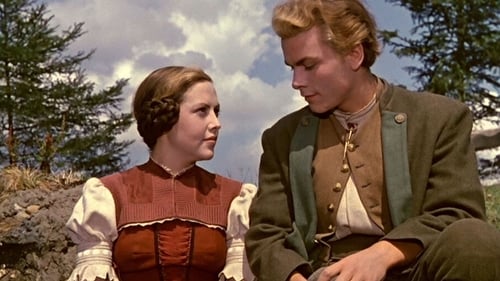
Peter, un humilde vendedor de coles, decide casarse, por lo que acude al hombrecito de cristal, que le concede dinero y bienes. Pero Peter gasta su fortuna a manos llenas antes de la boda, y tiene que invocar al malvado Michel para salir del apuro. Éste le exige su corazón a cambio de cumplir con sus deseos. Con un corazón de piedra, Peter se vuelve cruel e injusto. Sin embargo, un resto de humanidad le hace recapacitar, y en su desesperación clama de nuevo por el hombrecito de cristal…
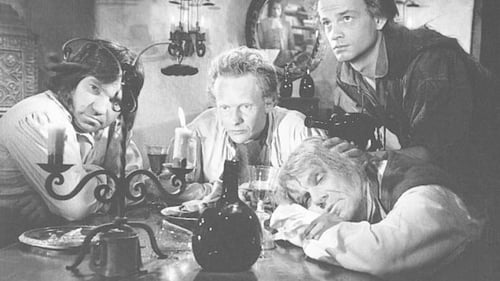
The story of Johann Friedrich Böttger, an apothecary’s apprentice and alchemist’s assistant. Fleeing from the Prussian King, he goes to Saxony, where King Frederick August the Strong takes him to a fortress and demands that he create gold. Böttger is equipped with everything he would need for the task, but he has known for a while that actual gold production is a myth and instead experiments with porcelain—white porcelain, as the Chinese are said to possess. In 1709, he finally succeeds in surprising the King with the "white gold," the first white porcelain made in Europe, he hopes for freedom.









